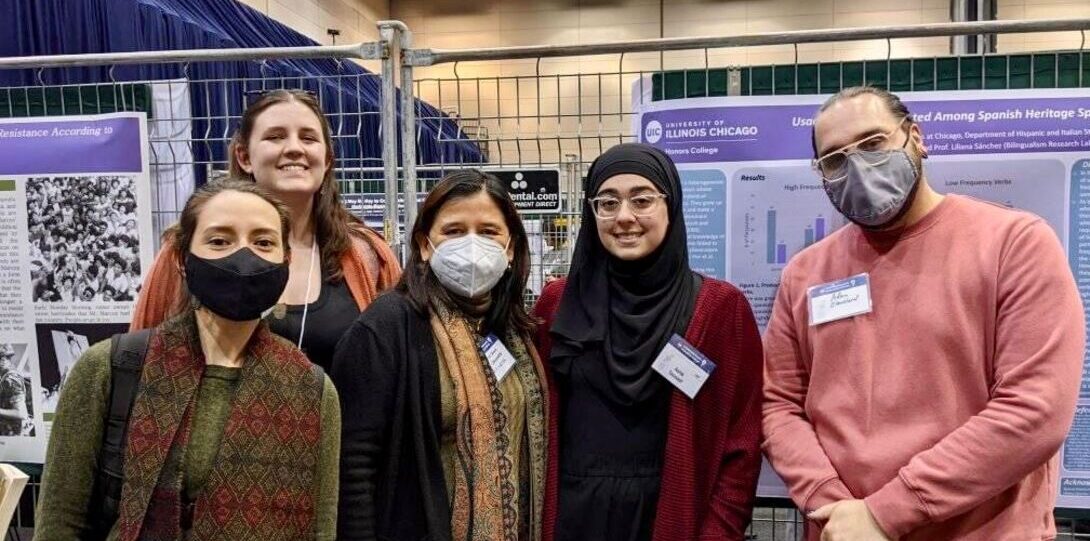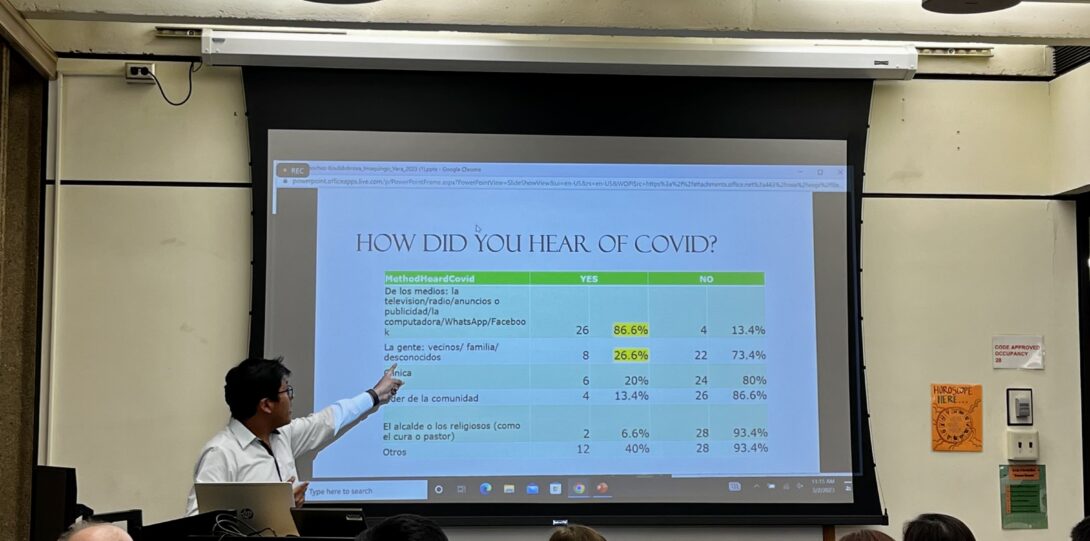Current lab projects
-
Heritage Language Attitudes
This project explores the linguistic and extralinguistic factors that influence the attitudes of heritage Spanish speakers who are currently taking Spanish as a heritage language courses at UIC. As a goal, this project seeks to identify the most common and beneficial practices to implement in class, and hence, the maintenance of Spanish as a heritage language. -
Quantification in bilingual development
Our current study’s overall objective is to further explore bilingual speakers’ grammar by investigating the possible effects of age, language use, and exposure among bilingual adults (18+). The main goal is to find whether these factors may affect the development and maintenance of critical aspects of their grammar involved in logical reasoning. This study explores the acceptability of telic and atelic interpretations among bilinguals who are Heritage speakers of Spanish and among monolingually-raised speakers as a point of comparison. We focus on levels of lexical access in the heritage and the socially dominant language, as well as dominance, age of acquisition, and patterns of language use.
-
Aspect in bilingual development
Our current study’s overall objective is to further explore bilingual speakers’ grammar by investigating the possible effects of age, language use, and exposure among bilingual adults (18+). The main goal is to find whether these factors may affect the development and maintenance of critical aspects of their grammar involved in logical reasoning. This study explores the acceptability of telic and atelic interpretations among bilinguals who are Heritage speakers of Spanish and English and among monolingually-raised speakers of the two languages as a point of comparison. We focus on levels of lexical access in the heritage and the socially dominant language, as well as dominance, age of acquisition, and patterns of language use.
-
How long does it take to name a picture?
The effects of proficiency, age of acquisition, and language usage on lexical retrieval among Spanish heritage speakers.
This study analyzes the impact of social variables, such as self-rated proficiency, age of acquisition, and language usage, on the speed and accuracy of lexical retrieval in Spanish-English bilinguals.
-
Indigenous Health, Minoritized Communities and Covid-19
Effective response to any health crisis depends on linguistic and cultural factors as well as social and economic ones. This is of special concern for indigenous and immigrant communities for whom information about the pandemic and important health actions may not match their language or health practices. Given the dangers of the pandemic and the importance of appropriate information sharing, the project aims to answer an overarching question: What can be done to increase understanding in a context of multilingualism and multiculturalism and unequal access to various types of healthcare? The goal of this project is to produce an instrument that addresses these issues and results in usable data which lead to health education materials in times of crisis. Here you will find a fully adaptable survey in several languages, a protocol for its administration, guiding questions for healthcare education material creation, and audiovisual materials based on the information collected. All of the aforementioned has been co-created with our Indigenous collaborators or solely by them. Other data are currently under analysis.

